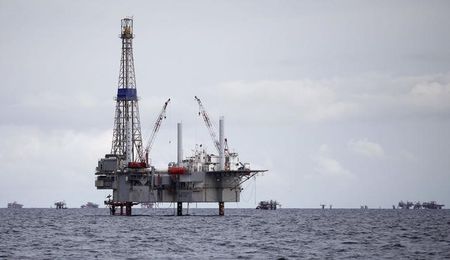
Investing.com– Oil prices moved sideways in Asian trade on Monday as traders watched for the impact of tropical storm Beryl on oil production in the Gulf of Mexico, while focus also remained on more signs of strong summer demand.
Crude prices were sitting on four straight weeks of strong gains amid expectations of higher summer demand, with recent gains also being driven by concerns over weather-related supply disruptions.
But fears of slowing economic growth and softer demand in top importer China somewhat tempered recent gains in oil.
Brent oil futures expiring in September rose 0.2% to $86.67 a barrel, while West Texas Intermediate crude futures steadied at $82.28 a barrel by 20:21 ET (00:21 GMT). Both contracts remained close to recent two-month highs.
Tropical storm Beryl approaches Texas
Media reports said the largest ports in Texas had closed operations and blocked traffic over the weekend to prepare for tropical storm Beyl, which is set to strengthen back into a hurricane before making landfall.
The storm is expected to pass through the biggest oil exporting regions in the state, with port closures presenting potential delays in oil shipments.
Initial expectations had been for Beryl to have a negligible impact on production. But the storm unexpectedly remained strong after leaving a trail of devastation through Jamaica.
The Gulf of Mexico is a key oil producing region for North America, and faces production disruptions every year during the summer storm season.
Any disruptions in crude productions present the prospect of tighter crude supplies- a scenario that bodes well for prices.
Travel demand, geopolitical risks keep oil underpinned
U.S. travel demand was seen hitting record highs during the Independence Day holiday last week. A large drawdown in U.S. inventories also ramped up bets on stronger summer demand, keeping oil prices largely underpinned.
Additionally, persistent geopolitical unrest in the Middle East also saw traders keep a risk premium largely priced into oil prices. Tensions between Israel and Lebanon’s Hezbollah showed little signs of easing, keeping markets on edge over an all-out war in the region, which is expected to disrupt oil production.
This post is originally published on INVESTING.




